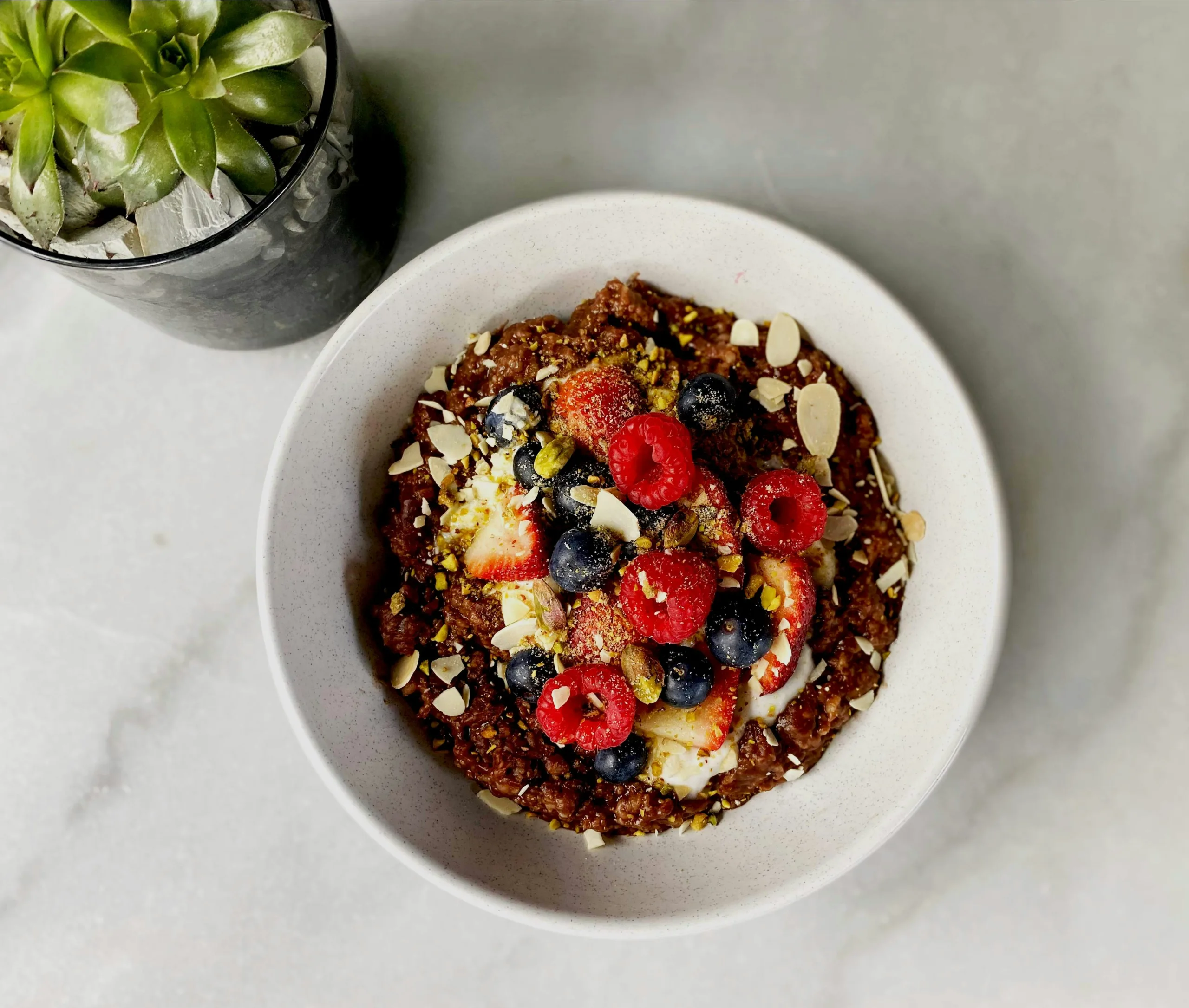Metabolism is one of those words many of us throw around without giving much thought to what it means or how it works.
What is this elusive concept we blame for being “slow” (as we lounge at the beach instead of hitting the gym)?
Put simply, metabolism is the process of converting the food (and drinks) we consume into energy. It’s a pretty important process given the fact that the body requires energy to do everything: walk, talk, breathe, digest … you get the picture. Some of our bodies are more efficient at this process than others, hence the popular idea of fast and slow metabolisms.
How Metabolism Happens
There are three ways metabolism happens:
- Your Basal Metabolic Rate (BMR) is the number of calories you burn doing nothing, i.e. just letting your body take care of basic functions, and it accounts for the biggest chunk (65%–75%) of total calories burned throughout the day.
- The thermic effect of food is the energy needed to digest, absorb, transport, and store the food we eat—accounts for about another 10% of calories burned.
- The thermic effect of exercise is the calories burned while you spin, lift, and pulse, which accounts for the rest.
RELATED: 10 Smart, Healthy Ways to Lose 10 Pounds
So how can you make sure your body is working as efficiently as possible to burn the fuel you provide and carry out all of its many functions? Metabolism is a tricky process to influence, but these factors may contribute to whether or not yours is happily humming.
5 Factors That Affect Metabolism
1. Weight loss
Yes, this one feels like a cruel trick the universe is playing on all of us. After losing a significant amount of weight, metabolism generally slows down, making it hard to keep weight off. You may have heard about this effect after the study on The Biggest Loser contestants’ struggles to maintain their weight loss long-term generated lots of buzz. Some studies have pointed to yo-yo dieting as causing the most damage (with people whose weight has gone up and down repeatedly having the most damaged metabolisms) but other research has refuted that idea. Either way, it’s helpful to know that if you’re someone who has experienced major weight loss, that could affect your caloric burn long after. (In other words, you can’t just revert to your old diet once the weight’s off; you need a serious long-term plan for maintenance.)
2. Strength Training
Here’s some better news: Lifting weights (heavy ones, please!) is one simple way to fire up your metabolism. Your body uses more energy to maintain muscle, so building muscle can keep your metabolism in overdrive long after your sweat session is over. High-intensity Interval Training (HIIT) has also been shown to fire up metabolism much more than steady-state cardio.
3. Too Much Exercise
However, don’t go crazy lifting heavy and banging out burpee intervals every day seven days a week. Many experts say that if you push your body too far, your body enters an inflammatory, stressed state and your hormones get totally out of whack, which in turn messes with your metabolism. Your metabolism won’t be able to work efficiently unless you give your body time to rest. Balance intense, effective workouts with enough sleep and restorative practices like yoga.
RELATED: A 30-Minute Yoga Routine to Fight Stress and Build Strength
4. Stress
Speaking of stress…other stressors can also make your metabolism sluggish. Studies have shown women who had stressful experiences the day before a high-fat meal burned fewer calories after the meal, and that chronic stress is linked to long-term fat storage and weight gain. On the flipside, some research links meditation to weight loss, so maybe it’s time to finally commit to trying it?
RELATED: A 2-Minute Calming Meditation to Manage Any Stressful Situation
5. Drinking Water
Hydration plays a big role in maintaining an efficient metabolism. One small study showed drinking 500ml of water increased metabolic rate by 30 percent. Drinking enough water will help your body metabolize food and will also prevent overeating (since thirst is often mistaken for hunger). Try drinking a large glass of water with lemon as soon as you wake up and continue to drink it throughout the day.





























